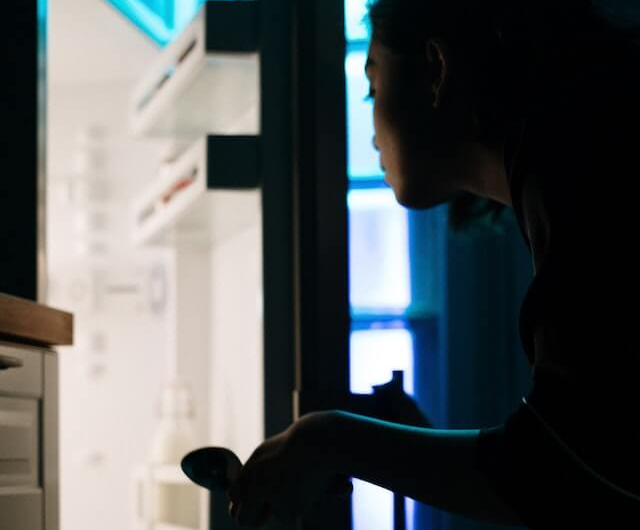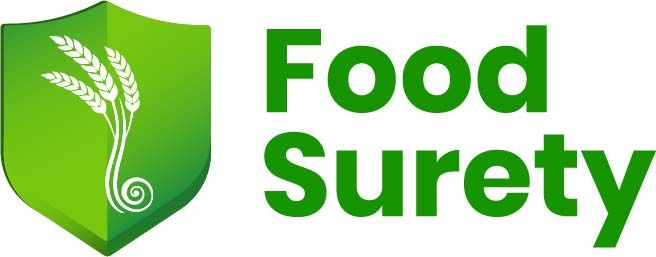Tips for Handling Flooding Damage at Food Businesses
Introduction
The recent flooding in Auckland-New Zealand has had a significant impact on many people, properties, and businesses including food businesses. If your food business has been affected by flooding, there is a potential for serious harm to public health due to the risk of infection and food contamination. The first advice we can give you is: do not go into flooded areas unless it is safe to and make sure you follow Civil Defence advice.
It is important that you do not prepare any food or reopen your establishment until you have the surety that affected food ingredients and products have been discarded and that the premises have been thoroughly cleaned and disinfected. Flood waters can be heavily contaminated with sewerage, pathogens, and other contaminants. The effects can be far-reaching, here are some tips for food business operators affected by flooding to help them weather the storm and come out on top.
What food businesses should do soon after the flood?
Among the many areas to pay attention to, the most important matter for food businesses affected by flooding is to prioritize food safety in order to protect consumers and the brand too. Here is our advice:
- Seek professional assistance if there is structural damage and or potential electrical damage to your property and equipment.
- Contact your insurer and follow their guidelines when it comes to keeping evidence of damage and quantities affected e.g take photos and videos, record quantities and so.
- Contact utility suppliers to reconnect as needed, but do not use electrical circuits or equipment exposed to flood water until checked by a qualified electrician.
- Check regulatory and council notices in regard to water supplies, the quality and safety of the water supply can be affected, and boil water notices can be issued in some areas.
- Wear rubber gloves when cleaning surfaces or moving objects that have been in contact with the flood water.
- Be aware of potential hazards such as sharp edges and raised nails on timber floorboards and tiled floors, until these have been repaired.
Dealing with power cuts, electrical and gas safety in a food business after flooding
Flooding can cause immediate and or long-term damage to electrical systems and gas lines in food businesses, which can result in power cuts, electrocution, dangerous gas leaks and pose safety risks. Taking the proper steps to mitigate these risks is essential for any business that has experienced flooding. We suggest you should seek professional advice and consider the following as examples of precautions to take:
- Switch off/isolate electrical systems and equipment. Consult a qualified electrician and have him/her inspect all electrical wiring and light switches for water damage such as corroded wires or exposed outlets. If there is significant water damage, have it repaired immediately by a professionally licensed electrician who specializes in hazardous areas.
- Turn off the main gas supply
- Contact your electricity supplier and or gas supplier if you have potential issues with supplies.
- Do not attempt to operate electric appliances, gas appliances and equipment submerged or affected by water without professionally checking them first, this can pose serious risk.
- Get the gas lines and their connections checked for water damage or corrosion. Gas valves should be inspected and tested to ensure they are operating correctly.
- Check the temperature of frozen and chilled food items to ensure their safety and suitability. Refer to related tips we have shared with you in this article.
- Use Generators Responsibly: Generator use must follow safe practices such as adequate ventilation and keeping fuel sources away from any ignition sources or heaters. Before purchasing a generator, consult an electrician about how to connect it safely so that you do not overload circuits.
Tips for cleaning food business premises after flooding
- Ensure it is safe to re-enter the premises and follow official advice.
- Switch off/isolate electrical equipment and consult a qualified electrician.
- Remember to check your insurance policies and contact your insurer and follow their guidelines.
- Discard affected food items, packaging, and supplies used to prepare food, as appropriate and in line with insurer guidelines.
- Clean all floors, hard surfaces, food preparation areas, food contact surfaces, equipment, food preparation utensils, glasses, and food containers in your food premises using hot soapy water several times until clean.
- Upon getting the green light to reuse affected fridges and freezers, empty and thoroughly clean them.
- Sanitise surfaces as required using food-safe disinfectant to kill harmful bacteria or pathogens introduced by the flood contaminated water. Make sure you strictly follow manufacturer's directions when using disinfectants and sanitisers.
- Dry out and ventilate the premises to prevent further growth of mould and mildew. Use dehumidifiers if necessary.
- Properly dispose of any spoiled foods that have been affected by flood waters to prevent contamination of other items in the business premises.
- Wash your hands and change protective clothing such as aprons, gloves and head wear regularly when cleaning food business premises after flooding.
- Pest infestation due to heightened pest activity can be expected so contact your pest management provider, they may suggest a re-visit from your pest controller.
How to handle food that was stored in my flood-affected premises?
- For insurance claim purposes, check your food business insurance policy and liaise with your insurer regarding quantifying and keeping evidence of affected areas, goods, packaging, and equipment. Your insurance company may require visiting your premises to assess damage or they might accept pictures, videos and invoices.
- Discard all food that has been affected by flood water, including unopened food items.
- Discard any open food stored in the flooded preparation area due to the risk of contamination.
- Discard packaging materials that have been in contact with flood water.
- Contact your waste management provider for advice and support.

How to handle frozen and chilled food in case of a power outage?
In the event of a power outage, it may be difficult to determine when the outage occurred. Where there have been no signs of flood water damage on the premises, it is important to check the temperatures of your freezer and fridge units for any potential food safety issues. Here are some general guidelines:
- Any frozen food items like meat, fish, or dairy products that are still frozen can continue to stay frozen.
- Any frozen products that are fully defrosted where the temperature is still below 5ºC, it can be moved to a fridge and used within a few days as appropriate as if it has been intentionally defrosted for use.
- Any frozen or chilled products that have been above 5ºC for longer than 4 hours should also be considered food waste and thrown away as a precautionary measure.
- Before restocking with food, check if the freezer and fridge are working properly, as floodwater is known to affect these.
Conclusion
Reopening a food business premises after flooding can be a daunting task. Not only will you have to worry about the structural damage caused by the water, but also any potential contamination of food and surfaces that may have occurred during the flood. In addition, if electrical systems were affected, there may be further repairs and inspections needed before they are safe to use again.
A thorough assessment and clean-up of the premises should be carried out before it can reopen, paying particular attention to all areas where food is prepared, stored, or served. It is important to check for signs of mould growth on surfaces and in any porous materials such as carpets or furniture padding. If mould is found it must be professionally treated before reopening.
Lastly, any food items that were exposed to flood water must be disposed of and any equipment damaged or contaminated should either be repaired or replaced. Following these steps will help ensure the safety and quality of the food served at your business once it has reopened.
If you are a food business operator and need further advice dealing with food business flooding damage, you can contact your council, Environmental Health Officer, Certification Body, verifier or us at Food Surety. In case you are reading this due to actual flood damage at your workplace, we wish you well and we are happy to provide any support we can so please reach out to us at Food Surety here.
Further Information for those affected by the Auckland Flooding:
- For more reliable health advice and information on cleaning and restoring your property affected by flood water, head to the Ministry of Health website.
- For further information on food safety in natural disasters and emergencies to the like of Auckland flood, head to the Ministry for Primary Industries website. Also to Tips for Food Safety During and After an Emergency [PDF]
- Find more on Auckland Council's advice, derived from the Food Control Plan template, for flood affected food businesses in Tāmaki Makaurau, check Reopening a Food Business After a Power Cut or Civil Emergency (e.g. earthquake, flood) [PDF]
Latest From Food Surety Blog
E-learning Courses
Virtual Classroom Courses
Free Resources

